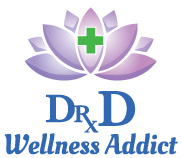Addiction is changing your morals to match your behaviors. Recovery is changing your behaviors to match your morals.
Addiction to anything is not about what or how much you use. The first step in recovery is admitting you are powerless over your addiction, and as a result, your life has become unmanageable. Powerlessness and unmanageability can come in many forms, and they can come from many sources – drugs, alcohol, sex, gambling, social media, TV, drama, and negative thought patterns, just to name a few.
Bottom line – you do not have to lose anything to be an addict, and you can have a problem regardless of what the addictive substance is, how much you use it, or who you are. It doesn’t matter your age, race, intellect, socioeconomic status, or education level. The disease of addiction does not discriminate. It is an equal opportunity destroyer.
As I described in my story, it’s time we raise the definition of rock bottom and redefine what it means to be an addict or alcoholic. The current edition of the Diagnostic and Statistical Manual of Mental Disorders, or the DSM-5, describes the term substance use disorder (i.e. addiction), as continuing to use the substance despite the harm it causes.
Most will agree that the classic, stereotypical alcoholic/addict describes substance abuse – continuing to drink or use despite loss of health, home, relationships and jobs. But let’s dive deeper into the definition of harm.
Ever wake up feeling hungover? That’s physical harm. Ever arrive late to work or are less productive during the day because of last night’s drinking? That’s occupational harm. Ever wake up knowing the drama that occurred last night wouldn’t have happened, or would have been less severe, if you hadn’t been drinking or using? That’s relationship harm. Ever wake up and say “I am never drinking again, only to get wasted in the upcoming days? These situations aren’t “normal” despite what society may say. These are just a few examples of the criteria for substance use disorder.
When I finally got help, I was drinking the least amount I had ever drunk in my drinking career. It was primarily wine, sometimes a glass or two, sometimes a bottle over a long meal – something socially acceptable in many parts of the world. Yet I still decided I was an alcoholic, because it’s not about what or how much you drink or use. It’s about whether or not you are powerless, and whether or not your life has become unmanageable as a result.
Even though I had great relationships, was succeeding in my career, and was overall pretty healthy, I still identified as an alcoholic. On the outside, my life was manageable. But on the inside, I knew I couldn’t stop, that I was powerless over my addiction, and that my mind had become unmanageable. Given the life recovery has afforded me… I am so glad I chose to seek help.
I will end by saying this – if you at all think you may have a problem with addiction or substance abuse, you are not alone. You didn’t choose this disease, but you can choose to recover from it. And if you are ready to take that first step and admit you have a problem, congratulations. That is half the battle, and recovery cannot occur unless that first step is taken. Stay tuned for more information on how to get help. I promise, recovery is possible, no matter what. You are not alone.
